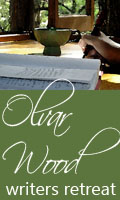
| current issue |
| archives |
| submissions |
| about us |
| contact us |
| short story competition |
sponsored by

Down the Rabbit Hole: ReReading Alice in Wonderland by Carla Billinghurst |
Why would anyone read 'Alice in Wonderland' today? Does it hold any of those Immortal Writing Truths we are always hunting for? Does it offer us any solace in our frenetic 21st century race to live longest, be prettiest, get the most stuff? In some ways I've never really liked Alice in Wonderland, even as a child. I found it too disjointed. Although the story follows Alice as she travels through this strange world, it doesn't really flow. The dialogue is difficult because it is all riddling statements and twisted words and weird perspectives.
And it always felt dangerous, as though there was a real chance people would be hurt. There seemed to be a lot of innocent bystanders drowning in tears and so on while Alice stamped her foot and asked stupid questions and did nothing useful. I hated the ending – I didn't want it to all have been a dream and I was too young to appreciate the final paragraph where Alice's big sister muses about childhood and takes us into Alice's future, showing us where her little sister's enthusiasm and passion is headed. Where Lewis Carroll tells us he is not necessarily happy with how the Victorian world turned excited, imaginative children into well-behaved, dull adults. Re-reading and re-reading it to write this review, I found myself enjoying the book more and more. There are glorious characters in here. You could write a Self-Help Book about how we all have an inner Red Queen or how to divide your work colleagues into White Rabbits and Mock Turtles. There are probably some deeper lessons too about humans and their pointless activities like endless tea parties and confused legal battles. Here is the Red King responding to the Knave of Hearts' claim that he didn't write, let alone sign, the letter that proves his guilt.
It may be looking too deep, but I certainly recognise Alice's frustrations with constantly having to be a different size to “fit in” and suddenly discovering everyone is behaving as if she is a different person to who she was yesterday. Alice unlocks doors but finds no solutions, only more questions.
There is a Great Debate happening around Lewis Carroll aka Charles Dodgson at the moment: was his interest in little girls prurient or not? The traditional side of the debate insists that it was – he had close friendships with girls rather than women, photographed them, wrote stories for them and really did not want them to grow up. The other side of the debate is looking into more recent scholarship which suggests that Dodgson did have friendships with women but his family chose to cover these up as much as possible because he was a member of the clergy and therefore celibate. In addition, there was an existing Victorian cult of the child: people took photographs of children, celebrated their passions and innocence and used children to talk about freedom. Victorian England was, we know, self-deceiving: highly moral on the surface but a seething mass of vice and corruption beneath. As the Duchess says:
There is a website devoted to the debate and it's probably not the main point of this review to restate the arguments – make your way to find out more. This is an England that ruled the world. This is a country full of confidence in its future and its position as unassailable leader of culture, philosophy, intellectual debate and technology. This is an England before either of the World Wars, the originators of the stiff upper lip. This was where the English developed their philosophy of suffering in silence. This is a country with no equals, let alone superiors, whose ruling class regarded any other class or race as “childlike” and immature. But anyone can see it's all a pack of cards. Anyone aware of the hypocrises of Victorian England could ask simple child-like questions and expose what lurks beneath, just as Alice does.
About the Author Carla Bililinghurst is the reviews editor of Perilous Adventures, and has never - never - fallen down a rabbithole before lunch.
|
 There is something rebellious about Alice. I know this because my mother didn't read it to my sister and I when we were young. In the Perfect World my mother tried to create around us, children were protected from the sort of questions Alice asks. Alice isn't particularly nice: she is offensive, judgemental and wilful. She is not punished for her curiosity, quite the opposite, and when she speaks out she is often rewarded. The whole story is a revolt against the strictures of Victorian society and a plea to accept and encourage the passionate nature of children and childhood.
There is something rebellious about Alice. I know this because my mother didn't read it to my sister and I when we were young. In the Perfect World my mother tried to create around us, children were protected from the sort of questions Alice asks. Alice isn't particularly nice: she is offensive, judgemental and wilful. She is not punished for her curiosity, quite the opposite, and when she speaks out she is often rewarded. The whole story is a revolt against the strictures of Victorian society and a plea to accept and encourage the passionate nature of children and childhood.